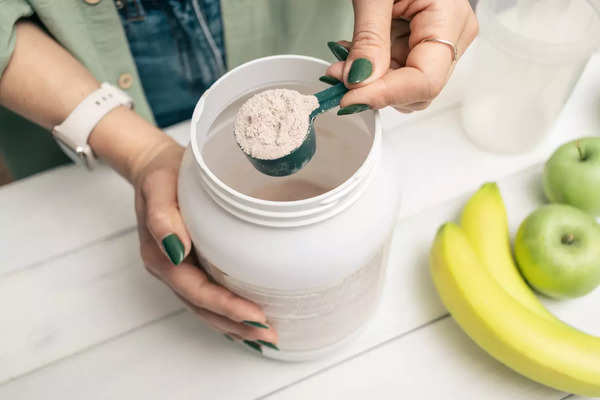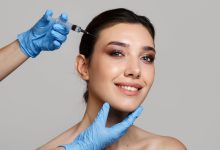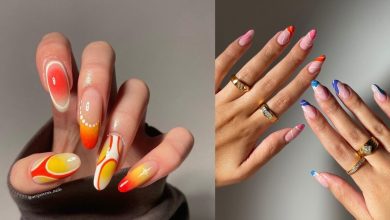Myth or reality: Does protein powder cause acne and bad skin?

Protein powder is a staple in the fitness world, loved by athletes, bodybuilders, and anyone looking to boost their protein intake. It’s convenient, effective, and can be easily mixed into shakes or meals. But with its popularity comes a lingering concern—does protein powder cause acne and bad skin? For many, this question is more than just a fleeting thought; it’s a genuine worry that has sparked numerous debates. 
What is protein powder?
First, let’s get to know protein powder a little better. Protein powders come in various forms, but the most common are derived from milk—specifically, whey and casein. There are also plant-based options made from peas, rice, hemp, and other sources. People use protein powder to help meet their daily protein needs, which is especially important for muscle repair, growth, and overall health. Whether you’re an athlete or just trying to maintain a healthy diet, protein powder is often seen as a quick and easy solution.
Relationship between diet and skin
Before we jump to conclusions about protein powder, it’s important to understand how diet affects your skin. Acne is a complex condition influenced by many factors, including genetics, hormones, stress, and yes, diet. While what you eat isn’t the sole cause of acne, certain foods can make it worse.
High-sugar diets, foods with a high glycaemic index, and dairy products have all been linked to acne. These foods can spike your insulin levels, which in turn can increase the production of sebum (oil) in your skin. Excess oil can clog pores and lead to acne. Dairy products, in particular, have been singled out because they often contain hormones that can disrupt your body’s hormonal balance, potentially leading to skin issues.
Does protein powder cause acne?
Now, let’s address the elephant in the room. Does protein powder really cause acne? The short answer: it depends, but it’s possible, especially with certain types of protein powder.
Whey Protein: The main suspect
Whey protein, made from milk, is incredibly popular but also the most likely to be linked to acne. Why? Whey protein contains a high level of the amino acid leucine, which is great for muscle building but also increases insulin-like growth factor 1 (IGF-1) in your body. IGF-1 is a hormone that can boost oil production in your skin, leading to clogged pores and, eventually, acne.
There have been studies, including one published in Dermatology Reports, where some people reported worsening acne after starting whey protein. However, it’s important to note that these effects were more common in individuals who were already prone to acne.
Casein Protein: A close contender
Casein, another milk-derived protein, digests more slowly than whey and is often used before bedtime. Like whey, it contains dairy hormones that might affect your skin. While there’s less direct evidence linking casein to acne, the potential is there, especially if your skin is sensitive to dairy.
Plant-based Protein: A safer bet?
If you’re worried about acne but still want to use protein powder, plant-based options might be your best bet. Proteins made from peas, rice, or hemp don’t contain the hormones found in dairy-based powders and are less likely to spike your insulin levels. Plus, they often have a lower glycaemic index, which is good news for your skin.
Other factors that might be at play
Even if you’re using whey or casein protein, it’s not a guaranteed ticket to acne. There are other factors to consider:
Your hormones
Hormonal fluctuations, especially during puberty, your menstrual cycle, or times of high stress, can trigger acne. If you’re hitting the gym hard and using protein powder, the physical stress combined with the hormonal shifts might exacerbate the problem.
5 Essential oils everyone must have for pain relief and overall health
Your overall diet
Protein powder is just one part of your diet. If you’re eating a lot of high-sugar, high-fat foods alongside your shakes, that could be a bigger culprit. A balanced diet with plenty of fruits, vegetables, whole grains, and healthy fats is key to clear skin.
Your skincare routine
What you put on your skin is just as important as what you put in your body. A proper skincare routine, including regular cleansing and using non-comedogenic (non-pore-clogging) products, can help keep acne at bay. And don’t forget—hydration is crucial. Drinking enough water helps flush out toxins and keeps your skin hydrated.
Myth or reality?
So, does protein powder cause acne and bad skin? The answer isn’t black and white. Whey and casein protein powders have been linked to acne in some people, particularly those who are already prone to breakouts. But that doesn’t mean everyone will have the same experience. The effects of protein powder on your skin depend on many factors, including your genetics, hormone levels, overall diet, and skincare routine.
If you’re noticing more breakouts since you started using protein powder, it might be worth experimenting with plant-based alternatives or cutting back on your intake. Listen to your body and adjust accordingly.
What should you do?
While protein powder—especially whey and casein—can potentially contribute to acne in some people, it’s not a guaranteed cause of bad skin. The key is to pay attention to how your body reacts. If you’re prone to acne and are concerned about the impact of protein powder, consider trying a plant-based option, adjusting your overall diet, or tweaking your skincare routine.
Source: times of india
Related Posts
- 5 foods you must have if want Korean Glass Skin
- I Asked the Coolest People I Know: What Makes an It-Girl Lip Balm?
- 7 hairstyles for women popular in 2025 weddings
- 12 Coconut Perfumes That Smell Like an Expensive Vacation (and Not Sunscreen)
- The 6 Hats Everyone Will Be Wearing Instead of Bucket Hats This Summer





